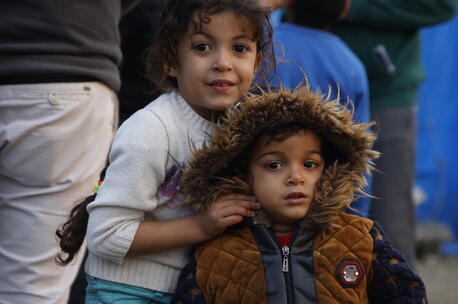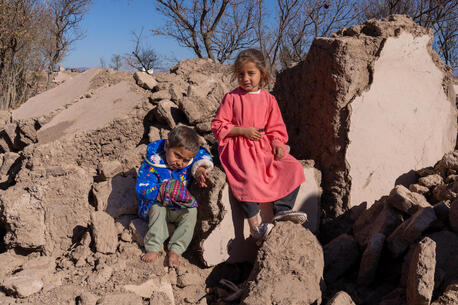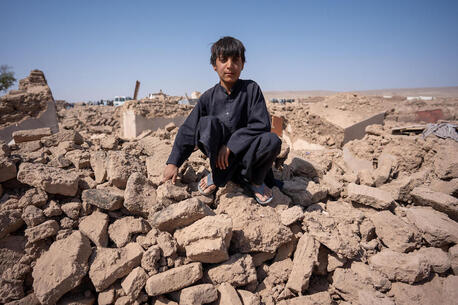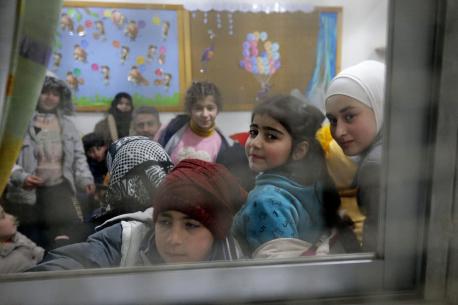
UNICEF Responding After Massive Earthquake in
Syria and Turkey
As aftershocks continue, children and families need immediate lifesaving support following the massive Feb. 6 earthquake.
The needs of children affected by the quake are huge and growing fast
Search and rescue efforts continue in Syria and Turkey amid aftershocks and bone-chilling cold in the wake of a major earthquake that killed more than 20,000 people and destroyed thousands of homes, displacing families in the early hours of Feb. 6.
Speaking with "The Today Show" from the UNICEF office in Aleppo on Feb. 7, Angela Kearney, UNICEF Representative in Syria, shared her firsthand experience and described the large and growing needs of children and families impacted by the quake.
"It happened at 4:15 in the morning on a winter's night, so it was very cold, very wet and people were very traumatized," she said. "The buildings came down and we've had lots of aftershocks as well. So it's a very difficult situation, very tragic, in a country that is already struggling with humanitarian needs."
UNICEF puts children first in emergency response
Ensuring that children are safe and secure is UNICEF's top priority. "Many families have had to go into shelters and most of those are schools, the ones that are not damaged," Kearney continued. "So families are there seeking shelter. They can't go back to their apartment buildings, especially with the aftershocks."
"Those children need food, they need water, they need sanitation. They need winter clothes, because most of them just fled their apartments in the middle of the night with nothing... [T]hey need medical care. It's very easy to get respiratory tract infections in this wintertime. So the needs are just great.
"The ones that are displaced into the schools may be the lucky ones. The other ones spent a couple of nights outside in this winter. So it's stepping up to find safe places for families to go to and receive humanitarian assistance. The needs are absolutely huge."
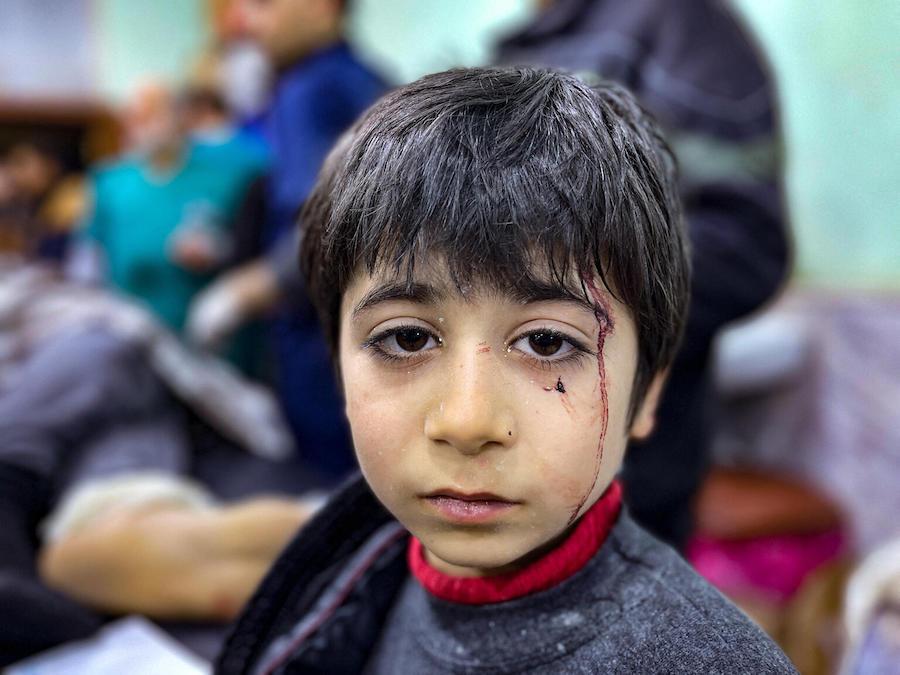
UNICEF providing child protection, safe water, emergency supplies
In Syria, UNICEF teams are:
- identifying separated and unaccompanied children and working to reunite them with family
- providing mental health support for children who have experienced trauma
- delivering emergency medical supplies, along with nutrition supplies such as high-energy biscuits
- rapidly assessing supply needs and redirecting supplies already in-country to fill immediate gaps
- ensuring children are able to get back into the classroom as soon as it is safe to do so
- ensuring children and families have access to safe water and sanitation services, including delivering safe drinking water to shelters by truck
Water, sanitation and hygiene (WASH) remain a key concern; a lingering cholera outbreak that began in September 2022 could become endemic if communities do not have access to safe water and functioning sanitation systems.
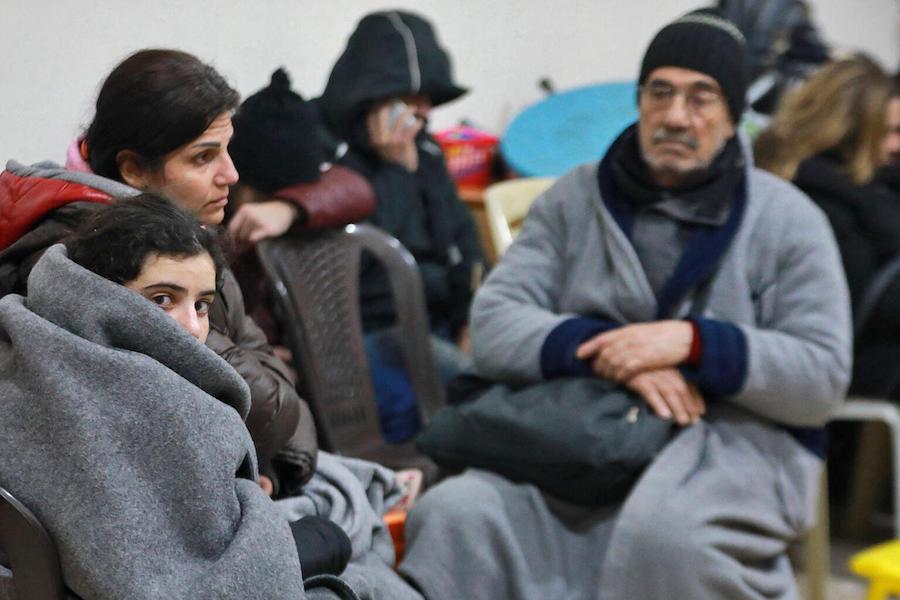
For Syria's children, a crisis on top of a crisis
Even before the earthquake, children in Syria were already living through a humanitarian disaster caused by the ongoing civil war, economic crisis and the COVID-19 pandemic. UNICEF works with an established network of 17 NGO partners to deliver urgently needed supplies and services across northwest Syria, where many children have been displaced up to 10 times in recent years. UNICEF also leads the coordinated multi-agency UN response in four areas: water, sanitation and hygiene (WASH), protection, nutrition and education.
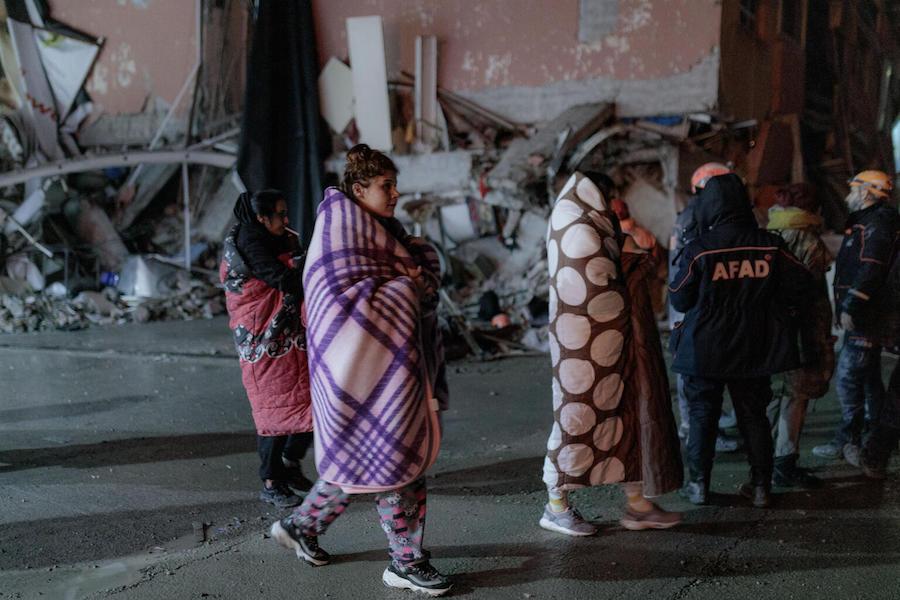
Warm clothing and blankets for children in Turkey
In Turkey, UNICEF is working with the government to provide immediate assistance in specific areas. The UNICEF country office is supporting search and rescue efforts and distributing emergency supplies including hygiene kits, blankets and warm clothing to children and families. UNICEF teams also ensured the evacuation to safe spaces of children living in small group homes in areas affected by the earthquake.
Your donation can help UNICEF reach more children in Turkey and Syria with critical emergency assistance. Please donate.
HOW TO HELP
There are many ways to make a difference
War, famine, poverty, natural disasters — threats to the world's children keep coming. But UNICEF won't stop working to keep children healthy and safe.
UNICEF works in over 190 countries and territories — more places than any other children's organization. UNICEF has the world's largest humanitarian warehouse and, when disaster strikes, can get supplies almost anywhere within 72 hours. Constantly innovating, always advocating for a better world for children, UNICEF works to ensure that every child can grow up healthy, educated, protected and respected.
Would you like to help give all children the opportunity to reach their full potential? There are many ways to get involved.



